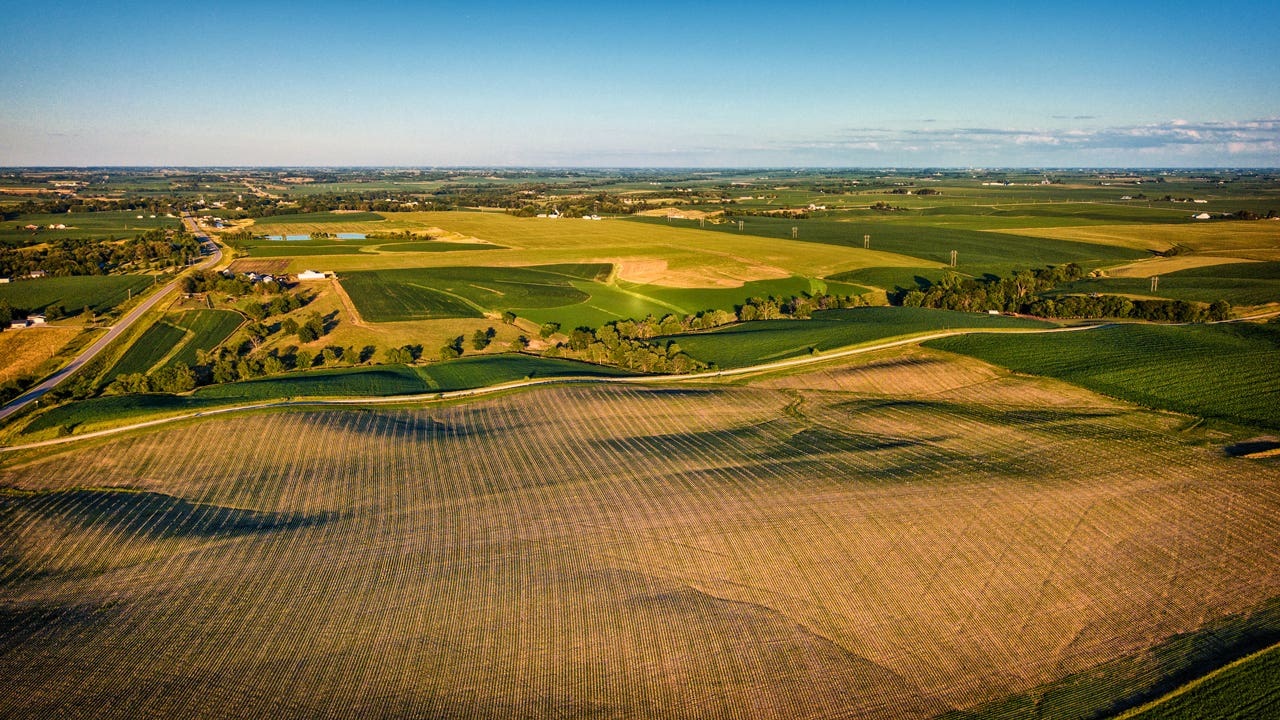How to sell land, and how land sales differ from home sales




Key takeaways
- Landowners can sell on their own or by working with a real estate agent.
- The process is much the same as selling a home, though more due diligence may be required.
- Getting the best price will likely mean helping buyers imagine what they can do with the land.
When you put an existing home up for sale, it’s not difficult for prospective buyers to picture how they’ll live it. They can easily see themselves watching the sunset from the patio, enjoying their kids or grandkids playing in the backyard or transforming a spare bedroom into a home office.
But imagining what could be done with an undeveloped parcel of land is much more challenging, whether it’s an empty lot in a residential neighborhood or raw land in the middle of nowhere. In either case, some prep work will be needed to get buyers to see the potential. If you’ve been wondering how to sell your land, here’s everything you need to know.
Selling land vs. selling a home: What’s different?
Selling land and selling a home both require you to find a buyer, negotiate the sale and close on the transaction. But how each of those steps is executed with unused land, versus a home with a yard or acreage, can be very different.
For example, while investment firms are becoming more common in residential real estate, most homebuyers are still private individuals looking for a place to live. By contrast, people buying land are almost always investors. And investors don’t need artfully staged listing photos of living rooms and kitchens, they need to see how their investment will perform. So how and where you advertise to them will look very different.
The due diligence period for buying land is also typically much longer. You can avoid some of this long process by preparing estimates and surveys in advance, but you can still expect a land sale to close much more slowly than a home sale would.
Do you need a real estate agent to sell land?
The answer is the same for land sales as it is for home sales: You technically don’t need a real estate agent, but it’s still probably a good idea to hire one. A knowledgeable agent will know how and where to best market the property and can help negotiate offers, just as they do for home sales. Look for someone who specializes in land transactions or has extensive experience doing so.
A good local agent can help you “understand the area’s future development plan and zoning, and has the capability to showcase the ‘highest and best use’ and return on investment to the buyer,” says Karen Hatcher, CEO of Sovereign Realty and Management, an investment and property management firm in Atlanta.
How to sell land
The easiest plot of land to sell is one that already has a clearly defined purpose. A lot in an existing subdivision requires little imagination — buyers can clearly see what types of homes they could build for themselves. An empty commercial lot is similarly easier to sell when surrounded by examples of existing businesses.
Keep in mind: The easiest plot of land to sell is one that has a clearly defined purpose.
When selling raw land, though, guiding your buyer’s imagination and proving to them that their desired use is possible is the key to making the sale — and netting the most money possible. Here are three steps to follow to sell your land successfully.
1. Preparing to sell
With raw land, it’s important to find out the zoning for the area. You may even want to look into whether the property can be up-zoned to a more valuable purpose.
For example: If you have a plot of land currently zoned for low-density residential housing near a university or downtown, you can try to get it zoned for higher-density residential housing or mixed zoning. That may attract a developer looking to build a multi-unit building with commercial offices or retail space on the ground floor and apartments above.
Showing potential buyers what is possible and how they can recoup their costs is also a smart move. Rounding up any or all of the following info in advance, so that you can provide it to potential buyers, can help your land sell faster and for a higher price:
- Topographical surveys
- Estimates from utility companies
- Renderings
- Projected income calculations
- Local lenders who offer land loans and are willing to work with buyers for your specific property
2. Listing the property
Once you understand the best use of your land, it’s time to list it for sale in a way that will attract buyers. Where you list your land will depend on the potential use. If it could become residential housing or commercial real estate, then contacting local real estate investment groups is likely to connect you with potential buyers. If it’s more suited to agricultural uses, contacting nearby farms to see if they’re looking to expand is a good place to start.
Just like with selling a home, you’ll want to demonstrate your land’s best features. If you have surveys, renderings or income estimates, include them in the listing. Working with a real estate agent experienced in the type of land you have can help.
3. Closing the deal
If you’re working with a real estate agent, they’ll negotiate on your behalf. If you’re not, it’s a good idea to hire a real estate attorney to draw up and review the contracts and closing paperwork. Last but not least, you’ll want to verify the title and escrow details, and have the necessary documents signed and notarized. This will be followed by a transfer of funds and the official recording of the deed to finalize the transaction.
Expert tips for selling land
- Work on zoning: Is it possible to have the land rezoned? “Up-zone if needed to the ‘highest and best use’ to maximize the price,” says Hatcher.
- Get surveys done: If you’re selling a large plot to become commercial property, “get full topographical surveys done,” says Kristen D. Conti, broker and owner of Peacock Premier Properties in Englewood, Florida. This speeds things up and eliminates the need to keep your property off the market while buyers determine feasibility, she says.
- Estimate earning potential: “Have a conservative financial pro-forma and optional development renderings completed, so the developer can see the potential return on investment,” says Hatcher.
- Prepare signage: “It may sound silly in this day and age, but a fabulous, large, easy-to-read sign is extremely important,” says Conti. “Visual aids and important facts about the lot draw the attention of buyers.”
- List on specialized websites: Some sites are more geared to land sales than others. Loopnet.com, Landflip.com, LandandFarm.com, HomeandLand.com and Land.com are among Conti’s favorites.
Why we ask for feedback Your feedback helps us improve our content and services. It takes less than a minute to complete.
Your responses are anonymous and will only be used for improving our website.
You may also like

‘We buy houses’ companies in New Hampshire

How to sell a house as-is in Florida

How to sell a house by owner in Michigan

How to sell a house by owner in Utah
